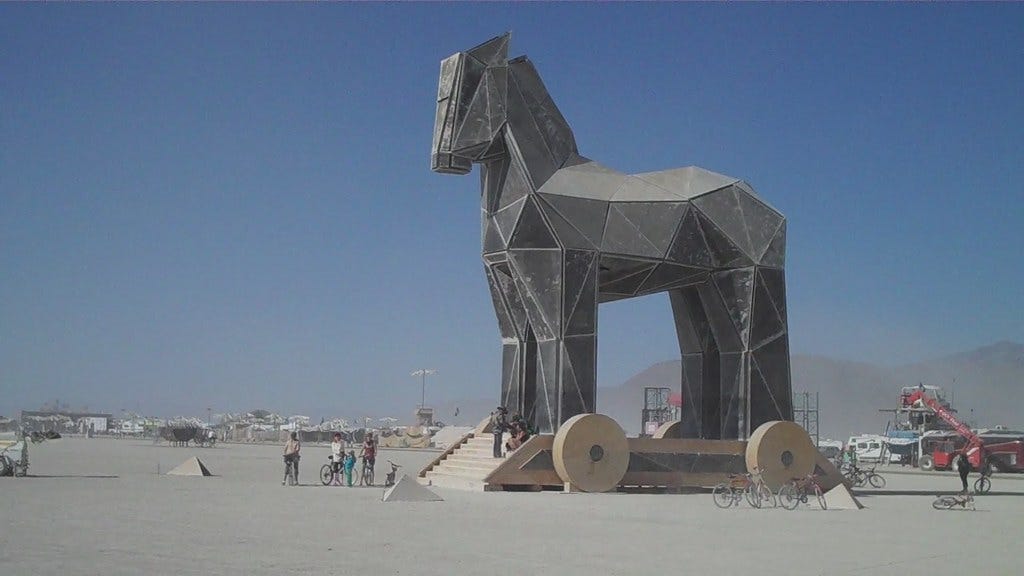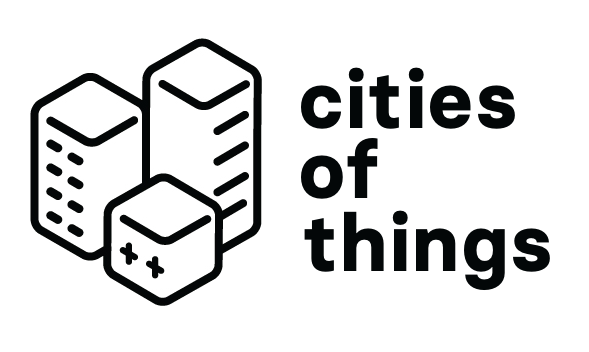Dear readers. As everyone is writing stuff on a routine (at least planned to do so), you think about the relevance at a moment that a big crisis is happening so nearby (I am based in the Netherlands); the invasion of Ukraine, that is, of course, Putin’s War. The images of what is happening are so sad and terrible.
I would have probably been writing a reflection on how this example of human-tech interactions is taking an interesting different stand on what autonomous driving is about with an AI taking the role of an attentive passenger and how that can be related to a different form of coaching relation. But I think it would make more sense to reflect on some of the analyses of the developments in the conflict and potential follow-up. There is a link with the themes that drive Cities of Things, I think, on a certain level. I read analysis and listened to a podcast that made me connect some of the aspects to the usual topics of this newsletter: is there a shift in agency of control that we need to be aware of?
There are a lot of assessments on the intentions of Putin’s crew for this war. Is it about re-establishing the Russian Empire or more? Is it economically driven or military defense? Is he getting crazy or sick and fighting for a place in history? It is useful to know the motivations to anticipate; it would be useful too to focus on the context. And instead of being surprised, anticipate the worst.
I watched this YouTube analysis on the geopolitical drivers; a break-down in economic interest and military defense. It makes a lot of sense, but is it the whole story?
This article by Umair Haque on the emergence of a world war in three phases made me think about the state of living in the moment of shifting agency. Haque describes how important the information war is and has been. The first phase started in 2014 with a destabilization strategy on different levels but using the power of ‘firehose’ social media strategies and supporting internal right-wing groups in western countries, from Trump to Brexit. As Haque describes, we are now entering a second phase: a local war. The third stage would be the end-game of a full-blown world war. It feels like a plausible or at least possible scenario. It tells more about the how than the why.

The mechanisms that facilitate the first seem to have a link with one of the core drivers to the Cities of Things; is the balance of agency in a society that is shaped for an important part through autonomous systems. In the three-step emerging of the planned overtake by Putin, is agency a key element, as the context, the breeding ground to make it possible. A Dutch thinker and essayist, Bas Heijne linked selfie-culture and rating systems together; we are becoming increasingly dependent on the systems we use for our self-image. And at the same time, we lose the feeling that we are in full control. In the research into predictive relations, I found the concept of alienation insightful. The already precarious citizens are the most vulnerable, but we all are influenced. Destabilizing in these times is much easier for a rogue regime.
As the systems become more and more intelligent and we delegate more and more of our decision-making to the systems, this danger will be even more pregnant. We are promoting transparency and contestability to secure the agency. Still, just as Haque describes, the trojan horse of shiny benefits is the real danger, like the money flowing to our economies by the rich oligarchs. We need to understand that the benefits can come with a consequence.
What to do? Often is referred to the Russian people as the key to stopping Putin’s crew. There are protests, but there seems to be a major part of the people that support the overall strategies and are less inclined to feel the impact of sanctions. Let’s hope that the younger generation has a different mindset…
We should prepare for fewer benefits from the economic relations as we have to withstand the ‘trojan horse.’ Even more, than we are already doing, we could build literacy in the systems we are part of. Build agency, design methods for the new structures. Wonder if a decentralized autonomous organization is an answer to building agency or is it just breeding new dependencies? Is Web3 a needed fork, or only amplifying hidden structures? Something to dive into another time.
Apart from all the other aspects of the crisis emerging, it would be wise to think through the potential impact of still hidden but creeping up dependencies of automated decision-making systems. At the beginning of last month, we were very busy with the relevance of the metaverse, how new it is, and what would happen if organizations such as Facebook claimed the concept with the wrong intentions. The real danger is when we don’t understand that we are already in a kind of metaverse of mediated information that media companies do not control. Or better, do not value the role and impact it had. It is becoming even more permeated in our lives, both digital and physical. Let’s find a way to resist. The first step is understanding. It won’t take away the motivations of Putin’s crew but might reduce some of his tools to influence…
This blog was sent as a newsletter before.
